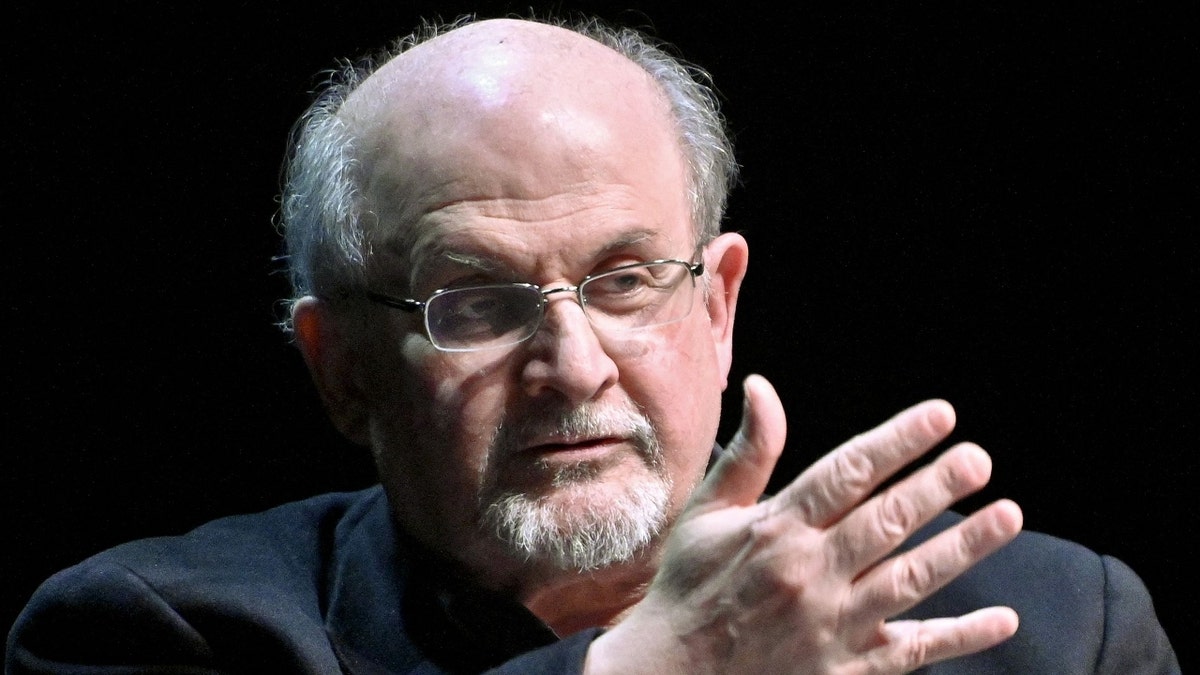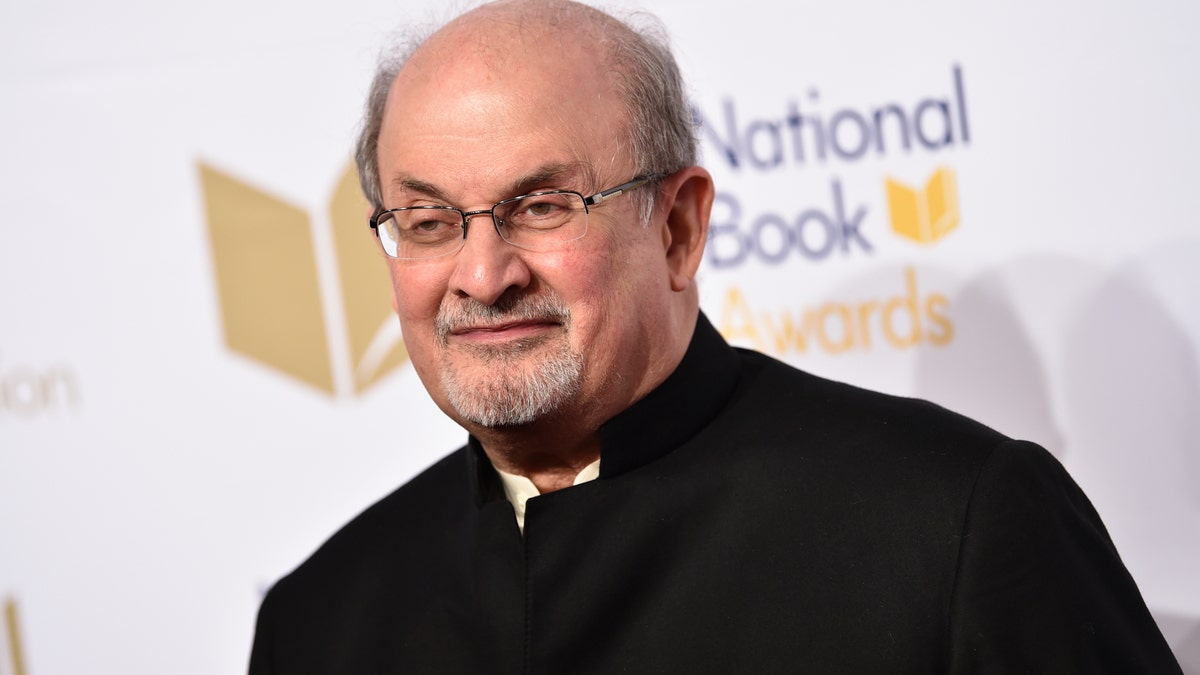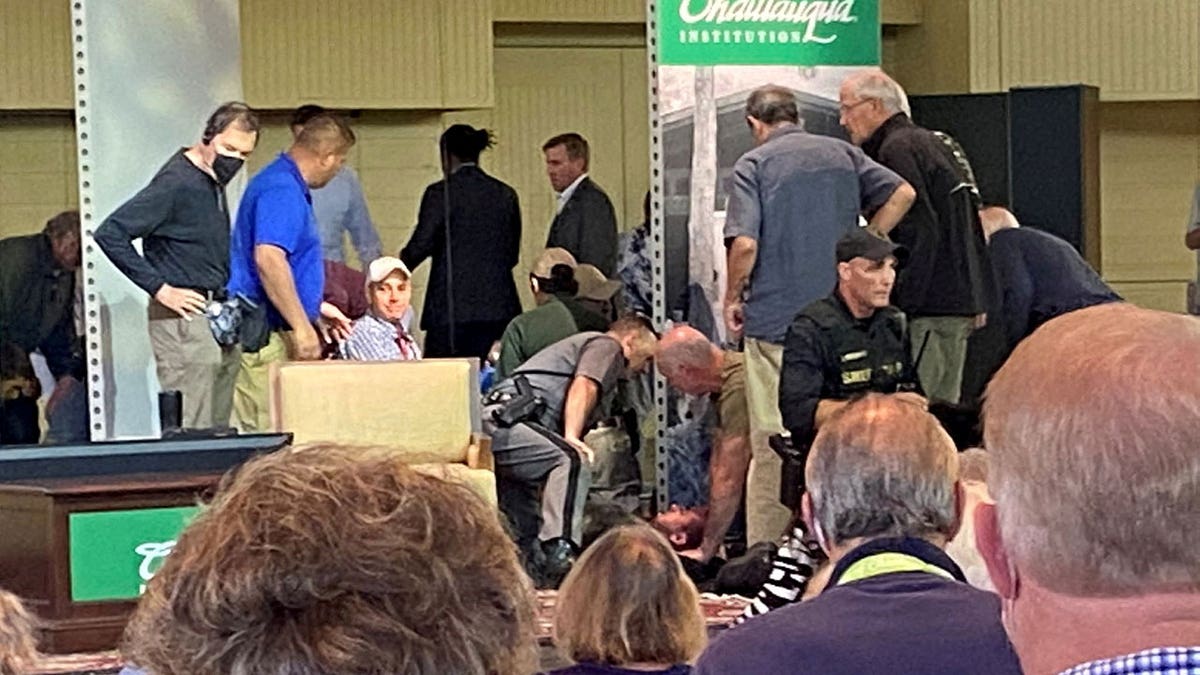Iran blames author Salman Rushdie following stabbing
National correspondent Bryan Llenas reports on Iran denying involvement in the stabbing of acclaimed author Salman Rushdie on 'America's Newsroom.'
Author Salman Rushdie gave his first interview after recovering from being brutally attacked last summer, saying he still suffered "nightmares" and post-traumatic stress but also felt "lucky."
"There have been nightmares—not exactly the incident, but just frightening. Those seem to be diminishing," he told The New Yorker's David Remnick.
The 75-year-old British-Indian author and free speech advocate was stabbed multiple times before he was about to give a lecture at the Chautauqua Institution in New York last August. He suffered a damaged liver and severed nerves in an arm and his right eye.
Rushdie has lived under the threat of a fatwa on his life issued by Iran's supreme leader in 1989 after he published his most famous novel "The Satanic Verses," which was banned in the country and considered blasphemous by some Muslims.

Author Salman Rushdie was stabbed and critically injured on Aug. 12. (HERBERT NEUBAUER/APA/AFP)
SALMAN RUSHDIE ATTACK RESULTS IN LOSS OF EYESIGHT IN 1 EYE, USE OF 1 HAND: REPORT
Rushdie, who has written 16 books since the fatwa, told The New Yorker that in the 30 years since he had begun to think the threats on his life were more of a worry from the past.
"But I had come to feel that it was a very long time ago, and that the world moves on," he told the outlet.
That changed last August when "devout Muslim" Hadi Matar saw the announcement of Rushdie's speaking engagement on Twitter and boarded a bus to Buffalo. The assailant was able to stab the author twelve times before a fellow speaker intervened.
Rushdie was hospitalized for six weeks before returning home. The attack has changed his life in more ways than one.
He was left blind in one eye, 40 pounds lighter and with decreased feeling in several of his fingertips. He says he can still write but he has to proceed slowly. He also told The New Yorker how he was healing but the brutal stabbing put him constantly in the hospital for various appointments.

Author Salman Rushdie says he still has "nightmares" after the horrific stabbing that nearly killed him last August. Yet, he considers himself lucky and is trying to look forward. (Evan Agostini/Invision/AP, archivo)
SALMAN RUSHDIE OFF VENITLATOR AND TALKING AFTER STABBING ATTACK, AGENT SAYS
"I’m fine. I’m able to get up and walk around. When I say I’m fine, I mean, there’s bits of my body that need constant checkups. It was a colossal attack," he told the outlet.
Rushdie said that the traumatic, near-death experience has made it difficult for him to write and had forced him to consider hiring security.
The author was adamant that he didn't want readers to think of him as a victim, however. "I’ve always tried very hard not to adopt the role of a victim," he said.
Rushdie expressed gratitude for the tributes sent to him and the people who saved his life after the attack.
"I’m lucky. What I really want to say is that my main overwhelming feeling is gratitude," he said.

Salman Rushdie is treated by emergency personnel after being stabbed on stage before his scheduled speech at the Chautauqua Institution in Chautauqua, New York, U.S., August 12, 2022, in this picture obtained from social media. (Mary Newsom via REUTERS)
CLICK HERE TO GET THE FOX NEWS APP
Upon reflection, the author was uncertain if it was a "mistake" to live his life unguarded since moving to the United States in 2000. But he didn't seem to regret his choices.
"[T]hree-quarters of my life as a writer has happened since the fatwa. In a way, you can’t regret your life," he said.
Rushdie's new novel "Victory City," will be released Tuesday and the author hopes readers will focus on the story rather than the August attack.
"I’m hoping that to some degree it might change the subject. I’ve always thought that my books are more interesting than my life," he said in the interview. "Unfortunately, the world appears to disagree."
Fox News' Pilar Arias and Joseph Wulfsohn contributed to this report.








































